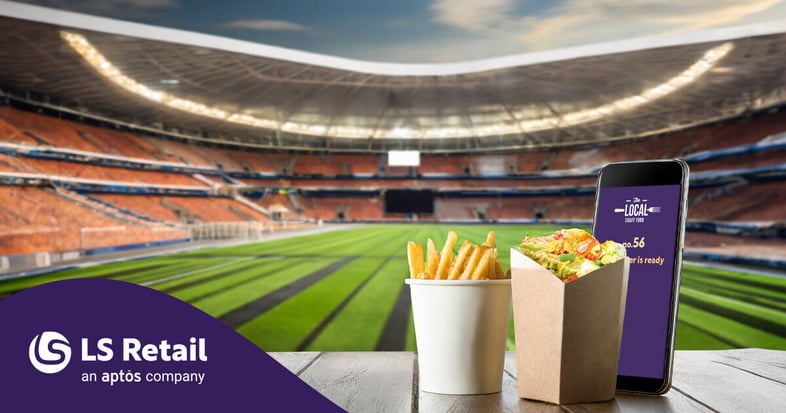3 ways sports and entertainment venues can use technology to maximize sales

When consumers visit an entertainment venue – whether it’s a football stadium or an opera house – they want the service they receive to be as smooth as possible. However, businesses that aren’t leveraging the right technologies to support the guest experience risk losing out on valuable sales and impacting their bottom line. Here are 3 ways sports and entertainment venues can use technology to maximize revenue:
1. Reduce wait times with self-service
Imagine being amped up for a game or concert, ready to dive into the action, but instead you’re spending ages waiting to grab a snack or a drink. Even when there’s halftime or intermission, you could be waiting in line for so long that you start to miss the next half of the event! Wait times at sports and entertainment venues are a huge point of frustration for customers, often leading them to leave long lines or avoid getting out of their seats altogether. But this can cause venues to miss out on profits and ruin the guest experience.
However, introducing self-service kiosks or QR codes to your strategy can minimize the risk of long lines and encourage guests to make more purchases. Self-service kiosks offer a quicker way for guests to order food and beverages at concession stands, which can significantly speed up wait times and make it easier for staff to handle a high volume of orders. On top of that, if you offer QR code or in-suite ordering, you can give guests the option to order snacks or merchandise directly from their seats and have it delivered to them. Not only is this more convenient for guests because they don’t have to leave their seats or risk missing any part of the event, but it also allows you to accommodate more guests for every event and increase revenue.
2. Track tickets across channels
It can be a complex task for many sports and entertainment venues to manage ticketing, especially if you’re using a bunch of separate, disconnected systems to do so. Many stadiums and theaters, for example, sell tickets on their own websites and through third-party providers, making it difficult to keep track of the types of tickets that have been sold and in what quantities. This can also lead to businesses selling too many tickets, which can result in lost revenue and unhappy guests, as well as increase the risk of inconsistent information across channels.
To avoid losing ticket sales, sports and entertainment venues need a software solution that helps them manage their ticketing across different channels, no matter if they were purchased online, on your mobile app, or directly at the venue. This way, you can ensure that your availability and information is up to date no matter where your guests choose to reserve tickets, helping you maximize selling opportunities and keep guests satisfied with your service.
3. Unite ticketing, retail, and F&B on one platform
Most sports and entertainment venue offer diverse revenue streams, often operating multiple food and beverage options, selling retail items relevant to the event, such as sports jerseys, t-shirts, hats, bracelets, glowsticks, stickers, etc., and other value-added services. But the trouble is that many businesses don’t have a clear visibility of all their sales data, making it impossible to understand what guests really want.
If you use a single software solution that can unite your ticketing, retail, and F&B services, you can manage all your services on one platform. This means that all your data is collected in a single database, so you can understand exactly what’s popular among your guests, and what isn’t, and see how your whole business is performing, without having to spend time manually aligning data across platforms. And when you can easily make sense of your data, you can create better strategies to meet their needs and leave them coming back for more.
Wondering how LS Central can help your sports or entertainment venue achieve success? Just contact us.

Is it time to re-evaluate the software for your sporting good store?
